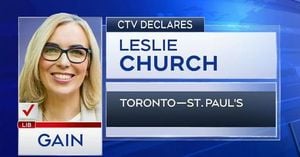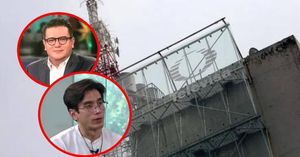Hurricane Milton, which recently swept through Florida, has left the state's vibrant tourism sector grappling with the aftermath of its destructive path. The hurricane, categorized as a powerful storm, made landfall with significant impact, leading to widespread damage across various coastal areas often frequented by vacationers. With hotels flooded, beach amenities destroyed, and many attractions closed, the question arises: how will Florida’s tourism industry bounce back?
Before the hurricane struck, Florida was gearing up for its peak tourist season. The summer months had seen a steady influx of visitors, and establishments were optimistic about continuing this trend as the winter holidays approached. Now, many are assessing the physical toll on their properties and the financial repercussions of lost business. With recovery efforts underway, many business owners, especially those reliant on the tourism influx, are anxious about the long-term consequences.
Local officials have quickly sprung to action to map out recovery processes. Notably, hotel owners and attractions are evaluating the extent of the damages to reopen as swiftly as possible. On Airbnb, hosts are currently assessing their properties for damages, worried about potential losses if they are unable to list their rentals during this most lucrative time of year. While some shops and accommodation facilities have announced plans to reopen soon, others are still reeling from the storm’s impact.
One of the municipalities hit hardest was Tampa Bay, where the hurricanes brought dangerous winds and torrential rain. Reports indicate damage to iconic sites like the Tampa Bay Convention Center, drawing concern over whether scheduled events can proceed. On social media, local authorities continuously remind residents and travelers to stay updated on safety recommendations, encouraging patience as assessment teams work diligently to evaluate and address the damages.
Many major attractions such as parks, museums, and retailers also faced the brunt of Milton's wrath. For example, the beloved Busch Gardens Tampa has had to close its doors temporarily after assessing damage to several rides and structures. The park had previously been lauded for significant renovations aimed at drawing more tourists. Now, the management is facing questions about when they can implement their recovery plan to welcome visitors back.
Despite the setbacks, there exist positive signs of community spirit and recovery. Local businesses have come together, offering mutual support and shared resources to bolster recovery efforts. Restaurants are hosting fundraising events, and pop-up shops opened to provide essentials to those affected. Many residents are joining volunteer initiatives as part of relief organizations, helping distribute supplies and serve meals to those displaced.
One initiative, spearheaded by Denny's Mobile Relief Diner, aims to provide free meals to first responders and those affected by the hurricane. The diner, which has previously served hundreds of hot meals to communities impacted by various crises, set up its operations at Lowe’s parking lot, providing comfort and nourishment to those working tirelessly to bring the city back to its feet. This is just one example of how community spirit is shining through even the darkest of times.
Looking forward, analysts suggest several strategies for recovery within Florida’s tourism sector. Among them is the roll-out of targeted marketing campaigns aimed at both state residents and tourists. These campaigns could focus on promoting smaller, less-populated areas of Florida as attractive tourist destinations, potentially offsetting the heavy tourist traffic typically seen at crowded locations.
Travel agencies, too, are encouraged to adapt to changing consumer preferences—considering eco-friendly travel options, for example, could appeal to conscientious travelers who prefer to support local economies. It is believed this shift might even encourage some visitors to become more actively engaged with the local community.
For now, Florida’s tourism industry is shifting its focus from immediate damage control to strategic long-term recovery. Stakeholders are hopeful for consensus on rebuilding efforts—balancing immediate needs with future growth opportunities. Industry experts assert revitalizing Florida's tourism will rely heavily on resilience and adaptability. Many believe the best way to safeguard against future storms includes improved infrastructure along the coast and enhanced safety measures.
Summer may still feel like a blur for folks staring at the costs of repairs, but now Floridians have adapted to this new reality. Local leaders and business owners echo the sentiment: the road to recovery may be long, but they're determined to revive Florida's spirit and draw visitors back to its shores. It’s this drive, coupled with community effort, which suggests brighter days might be on the horizon for Florida’s tourism.



